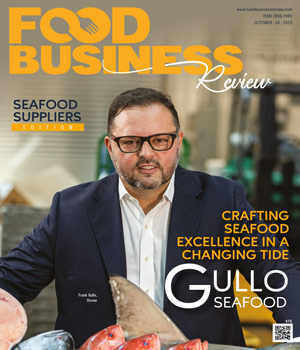Many seafood lovers are voting with their forks for sustainable seafood to preserve marine biodiversity. Sea Delight contributes significantly to this global movement through its sustainable seafood sourcing.
By bringing greater transparency and traceability to its supply chain, it offers a selection of wild-caught or aquaculture-raised seafood certified by the Marine Stewardship Council (MSC), Best Aquaculture Practices Certification (BAPC), and Aquaculture Stewardship Council (ASC). Sea Delight’s mission is to completely eliminate illegal, unreported, and unregulated (IUU) seafood from the supply.
The company’s broader commitment toward responsible seafood consumption and environmental stewardship extends well beyond acquiring products with certified blue fish ticks. It actively partners with small artisanal fisheries, guiding them into more ethical, transparent, and environmentally sound fishing practices. Through targeted fishery improvement projects (FIPs) with small fishing regions in Vietnam, Indonesia, and Peru, Sea Delight works hand in hand with renowned organizations like the World Wide Fund for Nature (WWF) and International Pole and Line Foundation (IPNLF).
“This synergy lets us enhance the pathway for fishing communities to secure MSC certification for their seafood,” says Cesar Bencosme, president of Sea Delight.
Bringing sustainability to the fish preservation techniques forms a vital part of the process. Unlike the costly and energy-intensive ultra-freezing methods commonly used for preserving fish, Sea Delight favors the time-honored wood smoking process to retain the fish’s freshness. Although the method involves burning the wood chips and filtering the resulting smoke for application to the fish, it offers a reduced environmental impact when implemented consciously. This process aligns well with the local fishermen who do not have access to sophisticated cold storage solutions.
Sea Delight’s mission is to completely eliminate illegal, unreported, and unregulated (IUU) seafood from the supply
In countries like Canada, where the use of carbon monoxide on fish is legally prohibited, Sea Delight’s wood smoking process offers a distinctive advantage. The company secured a patent specifically for the Canadian market to use this method. Its introduction, particularly for tuna and sushi items, has revolutionized access to premium seafood in the Canadian and American markets. One notable success story is of a retailer that previously purchased 50 to 75 cases of tuna per week, constrained by the fish’s high price point and perishability. Shifting to Sea Delight’s wood smoke-preserved tuna helped the retailer dramatically increase its intake to 15,000 pounds per week.
Sea Delight has similarly helped many large restaurant chains and retailers expand their seafood range and attract more customers.
Regular quality assurance evaluations are a standard procedure within Sea Delight’s operational framework. All of its manufacturing facilities hold Global Food Safety Initiative (GFSI) certification. In addition, the company conducts annual internal audits in accordance with the Supplier Ethical Data Exchange (SEDEX) guidelines to ensure country-specific compliance. It also participates in rigorous audits mandated by specific retailers, like Costco, aligning with their stringent social responsibility standards.
Providing these audit reports to clients is part of Sea Delight’s promise to foster transparent and effective business relationships. As an environmentally conscious seafood provider, the company will continue adding high-quality lines of products that inspire both blue food cultivators and consumers to participate in global conservation and sustainability efforts.
Thank you for Subscribing to Food Business Review Weekly Brief




